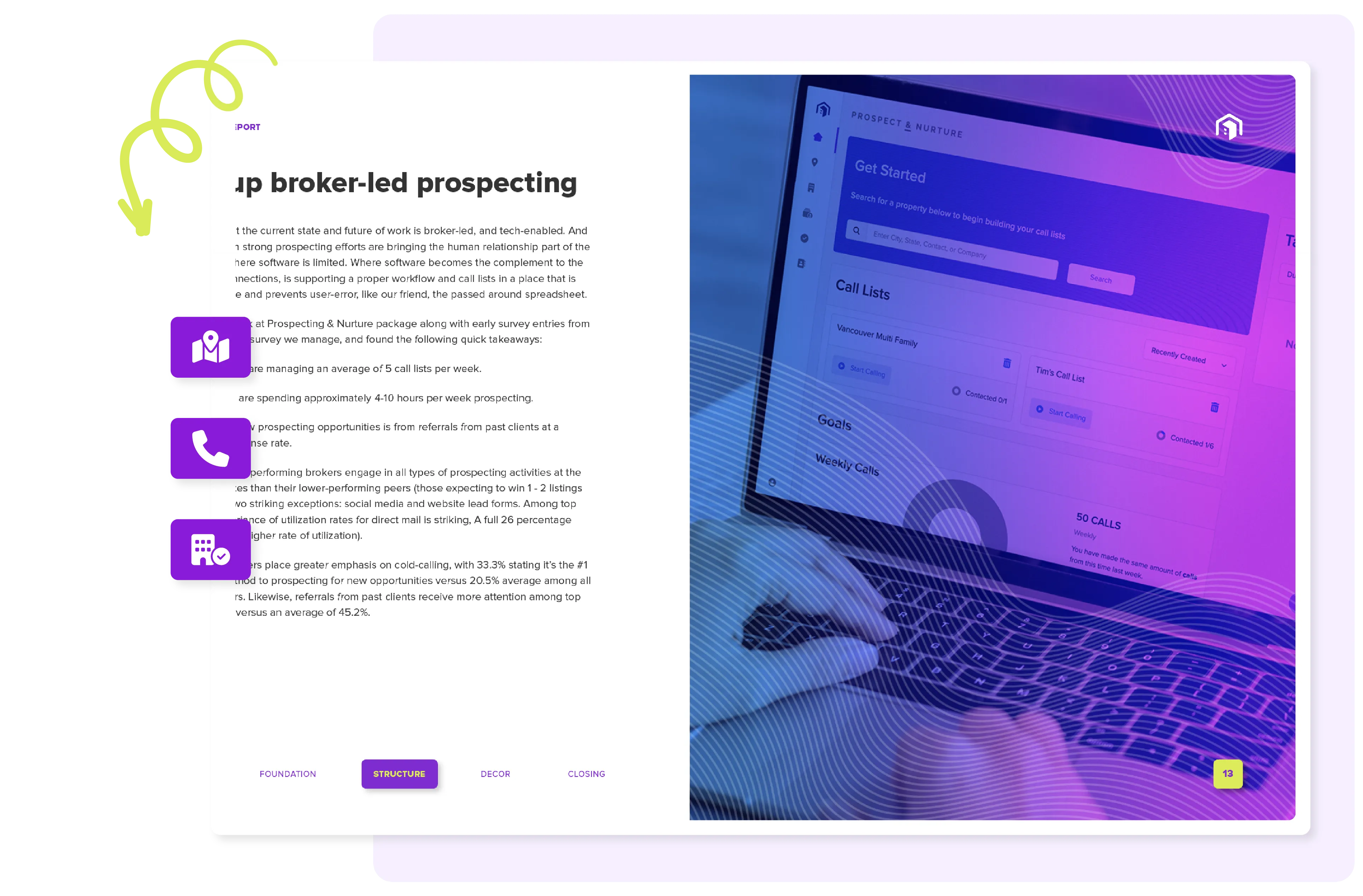

In the constantly evolving landscape of commercial real estate (CRE), the most successful brokers understand that balancing technology and human relationships is key to staying ahead. And top-performers are in nearly unanimous agreement that one of the most crucial aspects in achieving this perfect blend is in mastering prospecting activities, backed by an effective Customer Relationship Management (CRM) system.
Buildout's research found that top-performing brokers manage an average of 5 call lists per week and spend around 4-10 hours each week on prospecting activities. However, to manage this effectively, brokers need tech support. In an industry still chained to spreadsheets passed around the office, a robust CRM system can be a game-changer. It not only automates mundane tasks but also minimizes errors, allowing brokers to focus on what they do best—building relationships and closing deals.
The industry is morphing into a landscape that is "broker-led and tech-enabled." While technology has undeniably opened new avenues for reaching out to potential clients, it can never replace the unique value of human-to-human connections. This is where a robust CRM system becomes invaluable. A CRM organizes call lists, supports proper workflow, and acts as a comprehensive database, effectively eliminating the errors commonly found in less sophisticated systems like spreadsheets.
According to the Building CRE report, elite brokers manage an average of 5 call lists per week and spend 4-10 hours on prospecting. And while there are various channels for finding new clients, the #1 source is referrals from past clients, accounting for a staggering 82% response rate. While referrals are the lifeblood of top-performing brokers, it’s not how they spend most of their time. You’ll be shocked to find out what activity elite brokers do more than poor performers. Download our Building CRE Report to find out.

The study further reveals distinctive behavior among top-performing brokers, defined as those expecting to win 5 to 6 listings per month. These brokers not only engage in prospecting activities at the same or higher rates as their peers but also show a higher rate of utilization for specific activities. For example, market leaders rely on direct mail 165% greater than average and poor performers. They also place greater emphasis on one task that some believe is dead. Download the Building CRE Report to find out.
When it comes to CRMs, a generic solution simply won't do. Commercial real estate transactions are intricate, involving multiple parties, cap rate analyses, and often large sums of money. The CRM should be designed to support the complex needs of CRE.
Key considerations for choosing a CRM include its ability to integrate with other solutions, scalability to support business growth, and flexibility to accommodate unique workflows and processes. A good CRM not only acts as a database but also as a dynamic tool that enriches a broker's work experience without adding to the workload.

The evolving trends in prospecting behavior emphasize the irreplaceable value of the human element, underlining the importance of strong CRM systems that can support and enhance these human connections. As the industry becomes more competitive, choosing the right CRM could very well be the determining factor in a broker’s ability to maintain long-term relationships and achieve success. Therefore, balancing technological aid with personalized outreach remains the key to thriving in the world of commercial real estate.